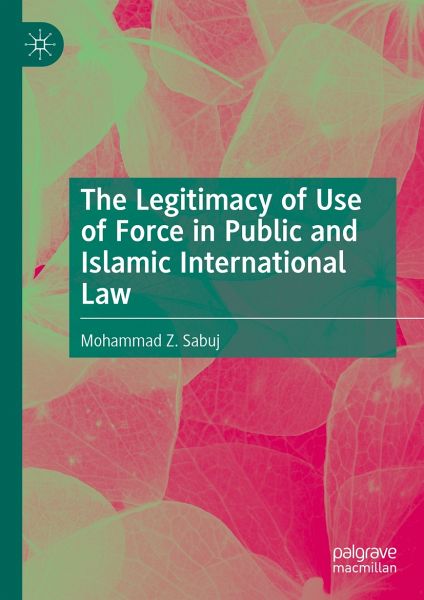
The Legitimacy of Use of Force in Public and Islamic International Law (eBook, PDF)
Versandkostenfrei!
Sofort per Download lieferbar
96,95 €
inkl. MwSt.
Weitere Ausgaben:

PAYBACK Punkte
48 °P sammeln!
This book investigates the legitimacy deficits of two potentially conflicting legal systems, namely Public and Islamic international law. It discusses the challenges that Public international law is being presented within the context of its relationship with Islamic international law. It explores how best to overcome these challenges through a comparative examination of state practices on the use of force. It highlights the legal-political legacies that evolved surrounding the claims of the legitimacy of use of force by armed non-state actors, states, and regional organizations. This book offe...
This book investigates the legitimacy deficits of two potentially conflicting legal systems, namely Public and Islamic international law. It discusses the challenges that Public international law is being presented within the context of its relationship with Islamic international law. It explores how best to overcome these challenges through a comparative examination of state practices on the use of force. It highlights the legal-political legacies that evolved surrounding the claims of the legitimacy of use of force by armed non-state actors, states, and regional organizations. This book offers a critical analysis of these legacies in line with the Islamic Shari'a law, United Nations Charter, state practices, and customs. It concludes that the legitimacy question has reached a vantage point where it cannot be answered either by Islamic or Public international law as a mutually exclusive legal system. Instead, Public international law must take a coherent approach within the existing legal framework.
Dieser Download kann aus rechtlichen Gründen nur mit Rechnungsadresse in A, B, BG, CY, CZ, D, DK, EW, E, FIN, F, GR, HR, H, IRL, I, LT, L, LR, M, NL, PL, P, R, S, SLO, SK ausgeliefert werden.












